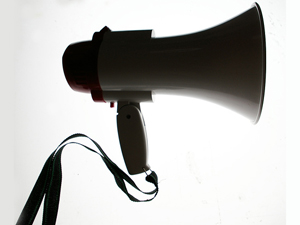New Guidelines Help Chicago Businesses Address Greenwashing
<p>The Foresight Sustainable Business Alliance (FSBA) recently adopted a code of ethics that includes procedures for evaluating and addressing false green marketing claims. A committee will carry out reviews of green claims on behalf of its members, mediate green marketing conflicts among members, and also raise greenwashing concerns about the marketing claims of non-members.</p>

Image CC licensed by Flickr user altemark
A Chicago-area business group is creating a "Transparency Committee" to review green marketing claims and help its members avoid greenwashing.
The Foresight Sustainable Business Alliance (FSBA) recently adopted a code of ethics that includes procedures for evaluating and addressing false green marketing claims. The committee will carry out reviews of green claims on behalf of its members, mediate green marketing conflicts among member companies, and also raise greenwashing concerns about the marketing claims of non-members.
"We found some of the members of the alliance were complaining that some of their competitors were greenwashing and that that was taking away from their business," said Amanda Medress, an associate with the Foresight Design Initiative. The FSBA, formerly known as the Chicago Sustainable Business Alliance, is an initiative of the Foresight Design Initiative, a local nonprofit.
The Code of Ethics defines greenwashing as disinformation that misleads the public about an environmental attribute that is unfounded or irrelevant. It advises companies to avoid greenwashing by basing claims on reliable evidence.
"Unsubstantiated and irrelevant claims regarding a product's qualities (green or otherwise) serve only to confuse the public, causing them to pass up legitimate products for ones that are not as they seem," the FSBA said in its Code of Ethics. "Not only could such practices constitute fraud, but they also serve to discredit the legitimate claims made by so many participants in the green sector."
The FSBA, comprised of about 100 Chicago-area businesses, is forming the Transparency Committee to help members ensure their green marketing claims are not deceptive. The committee will provide services to members for an hourly fee for the purpose of reviewing and helping revise green claims. It will also mediate member disputes over green claims if needed.
The committee will issue opinions on the appropriateness of green claims, ruling that claims are either good, questionable or bad. A "good" judgment means the committee didn't find any reason for concern over the claim, while a "questionable" finding indicates the committee sees potential problems with the claim and recommends the company follow up on the potential issues with it or other professionals. If the committee reaches a "bad" finding, they view the claim to be in direct violation of its anti-greenwashing policy or applicable law. The committee would recommend the company stop related marketing activity and seek professional help.
The committee may also report to authorities potential false green claims of non-members.
"Claims which are found to be justified -- i.e., that the committee has a reasonable basis to believe that concern deceptive or fraudulent environmental marketing claims, will be documented and pursued through those regulatory and legal channels available to the FSBA," it said in its Code of Ethics. "The committee will work with such bodies to assist in their preparation and filing of legal complaints against alleged greenwashers."
Image CC licensed by Flickr user altemark.

